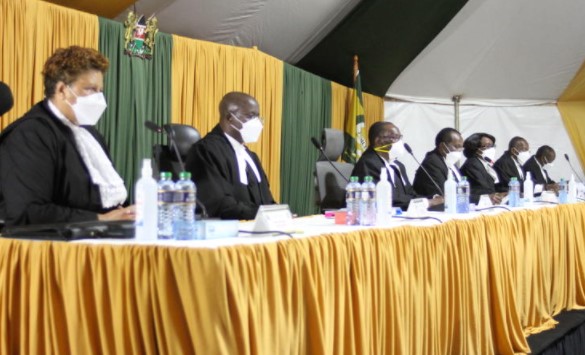×
The Standard e-Paper
Fearless, Trusted News

Court of Appeal Judges from left: Fatuma Sichale, Patrick Kiage, Roselyn Nambuye, Daniel Musinga, Hannah Okwengu, Kairu Gatembe and Francis Tuiyott. [Collins Kweyu, Standard]
Two of seven Court of Appeal judges have differed in their judgment on whether the Independent Electoral and Boundaries Commission (IEBC) met quorum when collecting the BBI signatures.






